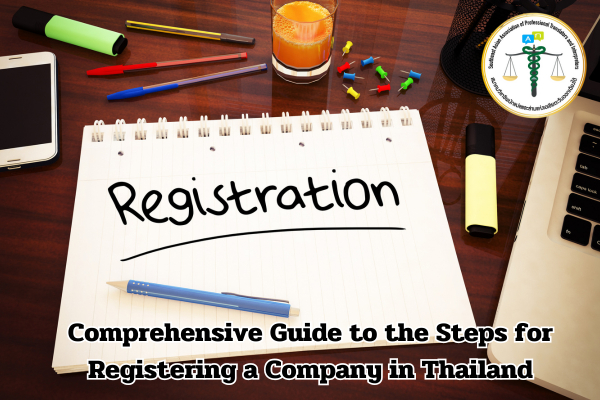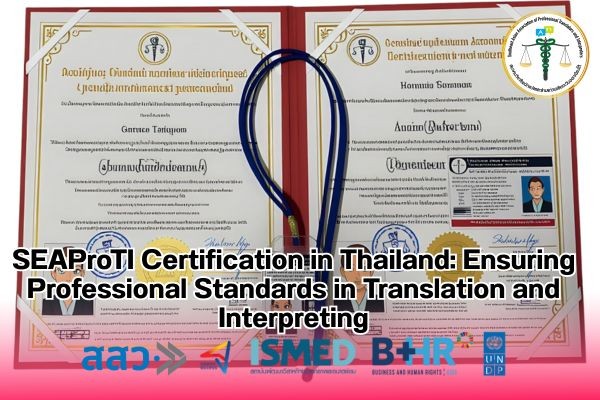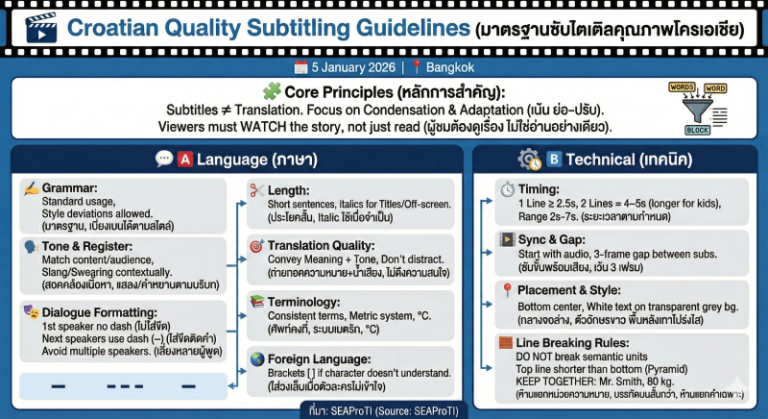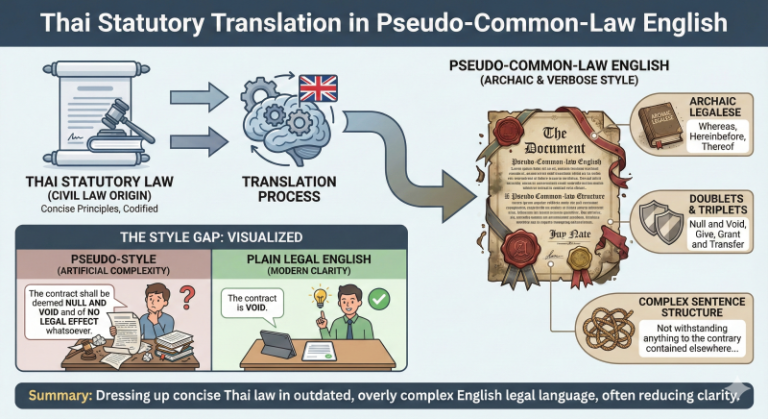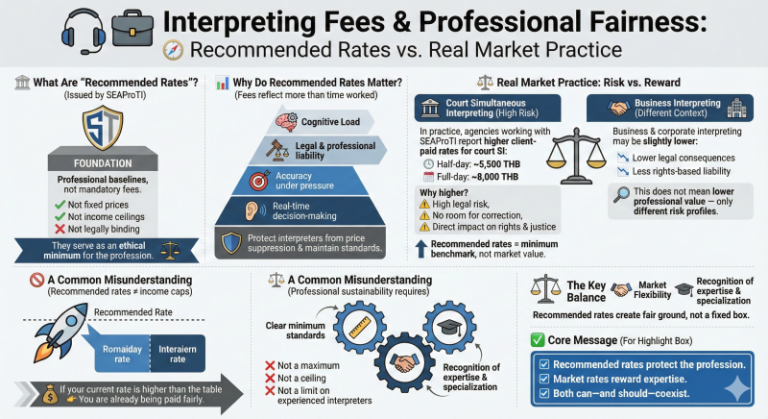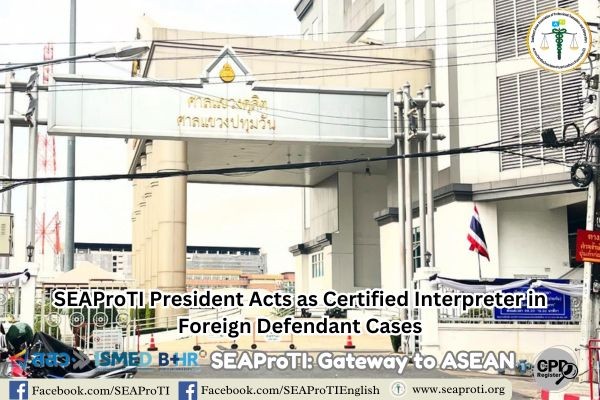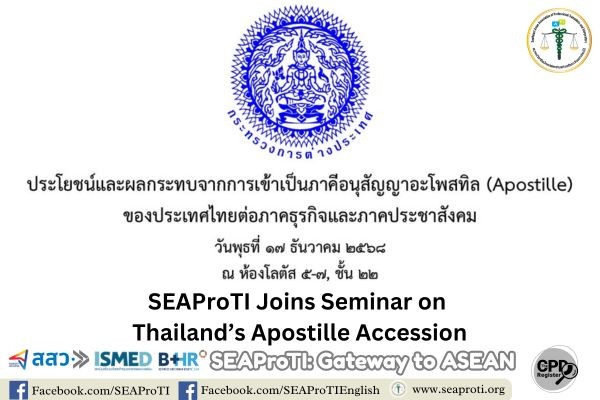Company Registration in Thailand: Steps and Key Considerations for Foreigners
10 January 2025, Bangkok – Thailand is one of the most attractive countries in the region for investors and entrepreneurs. With its rapidly growing economy, strategic location in Southeast Asia, and a supportive system for foreign investment, Thailand offers a favorable environment for businesses. If you are planning to expand your business in Thailand, here’s an overview of the necessary steps for company registration to get started.
Company Registration for Foreigners in Thailand
There are two main cases of company registration in Thailand when foreigners are shareholders. The first case involves a company with foreigners holding up to 49% of the shares. In this instance, the company is considered a Thai company and can engage in any type of business activity under Thai law. The second case is a company where foreigners hold 100% or over 49% of the shares. Such a company is classified as a foreign entity and must apply for a Foreign Business License or the Board of Investment (BOI) incentive program, which requires a more complex and time-consuming process.
The most common type of incorporation for foreigners is the Thai Private Limited Company. This structure requires at least three shareholders and offers limited liability, which provides advantages in terms of credibility, ease of fundraising, and flexibility in ownership distribution.
Step 1: Reserve the Company Name
The first step in registering a company in Thailand is reserving a company name. The proposed name must be distinct and not already registered. Promoters can submit up to three alternative names for consideration by the Department of Business Development (DBD). The name reservation can be done in person or online, with approval typically taking one to three business days. Once approved, the reserved name remains valid for 30 days without the option for extension.
Step 2: File a Memorandum of Association (MOA)
After reserving the company name, the next step is filing a Memorandum of Association (MOA). The MOA outlines essential details about the company, such as its name, address, objectives, registered capital, and shareholder information. The fee for MOA registration is calculated based on the registered capital, with a minimum fee of 500 Baht and a maximum fee of 25,000 Baht.
Step 3: Organize a Statutory Meeting and Purchasing of Shares
Once the MOA is filed, a statutory meeting must be organized. During this meeting, shareholders approve the Articles of Association, appoint the Board of Directors, designate an auditor, and finalize the allocation of shares. At least 25% of the share value must be paid upfront, and share certificates are issued to each shareholder.
Step 4: Company Registration
The company registration process must be completed within three months of the statutory meeting. The application is submitted to the DBD, and upon approval, the company receives a registration certificate and affidavit confirming its legal status. The registration fee is also based on the registered capital, ranging from 5,000 Baht to 250,000 Baht.
Step 5: Tax Registration
After registration, companies are issued a Tax ID, which serves as their identification for tax purposes. VAT registration is mandatory for companies whose annual turnover exceeds 1.8 million Baht. VAT registration must be completed within 30 days of surpassing this threshold.
Important Considerations
Foreign companies must consider several additional factors. Thai shareholders must provide financial documents such as bank statements or letters from banks certifying their financial status. Companies must also meet minimum capital requirements, with at least 2 million Baht per foreign employee required to hire foreign workers. Additionally, proof of the company’s headquarters, including a map and property owner’s permission, is necessary for registration.
The Role of Certified Translators and Interpreters
Certified translators and interpreters, particularly from SEAProTI (Southeast Asia Translators and Interpreters Association), play a crucial role in supporting the registration process. These professionals ensure the accuracy and compliance of translated documents, such as Articles of Association, financial records, and legal agreements, with Thai legal standards. Translation certifiers from SEAProTI also validate that all translations meet the required legal criteria.
Additional Benefits and Incentives
BOI incentives offer additional benefits for companies, including tax exemptions, full foreign ownership, and expedited work permit processes. Companies applying for a Foreign Business License must adhere to specific conditions and guidelines, as these licenses are required for business activities reserved for Thai nationals unless exemptions are granted.
Conclusion
The involvement of SEAProTI-certified translators and interpreters helps streamline the process, ensuring foreign entrepreneurs can establish their businesses in Thailand smoothly and efficiently.
About SEAProTI’s certified translators, translation certification providers, and certified interpreters:
The Southeast Asian Association of Professional Translators and Interpreters (SEAProTI) has officially announced the criteria and qualifications for individuals to register as “Certified Translators,” “Translation Certification Providers,” and “Certified Interpreters” under the association’s regulations. These guidelines are detailed in Sections 9 and 10 of the Royal Thai Government Gazette, issued by the Secretariat of the Cabinet under the Office of the Prime Minister of the Kingdom of Thailand, dated July 25, 2024, Volume 141, Part 66 Ng, Page 100.
To read the full publication, visit: the Royal Thai Government Gazette
การจดทะเบียนบริษัทในประเทศไทย: ขั้นตอนและข้อควรพิจารณาสำหรับชาวต่างชาติ
10 มกราคม 2568, กรุงเทพฯ – ประเทศไทยถือเป็นหนึ่งในประเทศที่น่าลงทุนที่สุดในภูมิภาคเอเชียตะวันออกเฉียงใต้ ด้วยเศรษฐกิจที่เติบโตอย่างรวดเร็ว ทำเลที่ตั้งที่มีความได้เปรียบเชิงกลยุทธ์ และระบบสนับสนุนการลงทุนจากต่างประเทศที่เป็นมิตร หากคุณกำลังวางแผนขยายธุรกิจในประเทศไทย นี่คือภาพรวมของขั้นตอนการจดทะเบียนบริษัทที่จำเป็นสำหรับการเริ่มต้น
การจดทะเบียนบริษัทสำหรับชาวต่างชาติในประเทศไทย
กรณีการจดทะเบียนบริษัทในประเทศไทยที่มีชาวต่างชาติเป็นผู้ถือหุ้นแบ่งออกเป็น 2 รูปแบบหลัก ได้แก่
- บริษัทที่ชาวต่างชาติถือหุ้นไม่เกิน 49% ซึ่งถือเป็นบริษัทไทยและสามารถดำเนินธุรกิจได้ทุกประเภทตามกฎหมายไทย
- บริษัทที่ชาวต่างชาติถือหุ้นตั้งแต่ 50% ขึ้นไป ซึ่งถือเป็นบริษัทต่างชาติและต้องขอใบอนุญาตประกอบธุรกิจของคนต่างด้าว (Foreign Business License) หรือสมัครเข้าร่วมโครงการส่งเสริมการลงทุนจากสำนักงานคณะกรรมการส่งเสริมการลงทุน (BOI) ซึ่งมีขั้นตอนที่ซับซ้อนกว่าและใช้เวลามากกว่า
บริษัทจำกัด (Private Limited Company) เป็นรูปแบบธุรกิจที่ได้รับความนิยมมากที่สุดสำหรับชาวต่างชาติ เนื่องจากต้องมีผู้ถือหุ้นอย่างน้อย 3 คน และมีข้อจำกัดความรับผิดชอบที่สร้างความน่าเชื่อถือและความยืดหยุ่นในการระดมทุนได้ดีกว่ารูปแบบอื่น ๆ
ขั้นตอนที่ 1: จองชื่อบริษัท
ขั้นตอนแรกของการจดทะเบียนบริษัทคือการจองชื่อบริษัท ชื่อที่เสนอจะต้องไม่ซ้ำและยังไม่ได้ลงทะเบียนไว้ในระบบ ผู้ก่อตั้งสามารถเสนอชื่อสำรองได้ถึง 3 ชื่อ และชื่อที่เหมาะสมที่สุดจะได้รับการอนุมัติ การจองชื่อนี้สามารถทำได้ทั้งที่กรมพัฒนาธุรกิจการค้า (DBD) หรือผ่านระบบออนไลน์ โดยการอนุมัติจะใช้เวลา 1-3 วันทำการ และชื่อที่จองไว้จะมีอายุการใช้งานเพียง 30 วันโดยไม่มีการขยายเวลา
ขั้นตอนที่ 2: จัดทำหนังสือบริคณห์สนธิ (MOA)
หลังจากจองชื่อบริษัท ขั้นตอนต่อมาคือการจัดทำหนังสือบริคณห์สนธิ (Memorandum of Association: MOA) ซึ่งระบุรายละเอียดสำคัญเกี่ยวกับบริษัท เช่น ชื่อบริษัท สำนักงานที่ตั้ง วัตถุประสงค์ ทุนจดทะเบียน และข้อมูลผู้ถือหุ้น ค่าใช้จ่ายในการจดทะเบียน MOA คิดตามจำนวนทุนจดทะเบียน โดยมีขั้นต่ำ 500 บาท และสูงสุด 25,000 บาท
ขั้นตอนที่ 3: จัดประชุมจัดตั้งบริษัทและการจัดสรรหุ้น
หลังจากการยื่น MOA จะต้องมีการจัดประชุมจัดตั้งบริษัท (Statutory Meeting) เพื่ออนุมัติข้อบังคับบริษัท แต่งตั้งคณะกรรมการบริษัทและผู้ตรวจสอบบัญชี และจัดสรรหุ้นให้กับผู้ถือหุ้น โดยผู้ถือหุ้นแต่ละรายต้องถือหุ้นอย่างน้อย 1 หุ้น และต้องชำระมูลค่าหุ้นขั้นต่ำ 25%
ขั้นตอนที่ 4: การจดทะเบียนบริษัท
การจดทะเบียนบริษัทต้องดำเนินการภายใน 3 เดือนหลังจากประชุมจัดตั้งบริษัท การยื่นคำขอจดทะเบียนสามารถทำได้ที่กรมพัฒนาธุรกิจการค้า โดยเมื่อได้รับการอนุมัติ บริษัทจะได้รับหนังสือรับรองการจดทะเบียนและหนังสือรับรองบริษัท ซึ่งใช้เป็นหลักฐานทางกฎหมายในการดำเนินธุรกิจ
ขั้นตอนที่ 5: การจดทะเบียนภาษี
หลังการจดทะเบียน บริษัทจะได้รับหมายเลขประจำตัวผู้เสียภาษี (Tax ID) ซึ่งใช้สำหรับการเสียภาษี ในกรณีที่รายได้เกิน 1.8 ล้านบาทต่อปี บริษัทจะต้องจดทะเบียนภาษีมูลค่าเพิ่ม (VAT) ภายใน 30 วันหลังจากรายได้เกินเกณฑ์นี้
ข้อควรพิจารณาที่สำคัญ
สำหรับบริษัทที่มีชาวต่างชาติเป็นผู้ถือหุ้นหรือกรรมการ จำเป็นต้องจัดเตรียมเอกสารเพิ่มเติม เช่น รายการเดินบัญชีธนาคารย้อนหลัง 6 เดือน หรือเอกสารยืนยันสถานะทางการเงินจากธนาคาร หากทุนจดทะเบียนเกิน 5 ล้านบาท จะต้องมีเอกสารยืนยันเพิ่มเติมว่าผู้ถือหุ้นหรือกรรมการได้รับเงินทุนครบถ้วนแล้ว นอกจากนี้ สำนักงานที่ตั้งของบริษัทต้องมีแผนที่สำคัญ สำเนาทะเบียนบ้าน และหนังสือยินยอมจากเจ้าของสถานที่
บทบาทของนักแปลและล่ามที่ได้รับการรับรอง
นักแปลและล่ามที่ได้รับการรับรองจาก SEAProTI (สมาคมนักแปลและล่ามเอเชียตะวันออกเฉียงใต้) มีบทบาทสำคัญในการสนับสนุนขั้นตอนเหล่านี้ พวกเขามีหน้าที่แปลเอกสารสำคัญ เช่น หนังสือบริคณห์สนธิ แบบฟอร์มจดทะเบียนบริษัท และเอกสารรับรองอื่น ๆ เพื่อให้เป็นไปตามมาตรฐานทางกฎหมายของไทย นอกจากนี้ SEAProTI ยังมีผู้รับรองการแปลที่ช่วยยืนยันความถูกต้องของเอกสารแปลตามข้อกำหนดทางกฎหมาย
สรุป
การจดทะเบียนบริษัทในประเทศไทยต้องการความเข้าใจในกฎหมายและกระบวนการที่เกี่ยวข้อง การใช้บริการนักแปลและล่ามที่ได้รับการรับรองจาก SEAProTI จะช่วยให้การดำเนินการมีความราบรื่นและเป็นไปตามมาตรฐานกฎหมายไทย
เกี่ยวกับนักแปลรับรอง ผู้รับรองการแปล และล่ามรับรองของสมาคมวิชาชีพนักแปลและล่ามแห่งเอเชียตะวันออกเฉียงใต้
สมาคมวิชาชีพนักแปลและล่ามแห่งเอเชียตะวันออกเฉียงใต้ (SEAProTI) ได้ประกาศหลักเกณฑ์และคุณสมบัติผู้ที่ขึ้นทะเบียนเป็น “นักแปลรับรอง (Certified Translators) และผู้รับรองการแปล (Translation Certification Providers) และล่ามรับรอง (Certified Interpreters)” ของสมาคม หมวดที่ 9 และหมวดที่ 10 ในราชกิจจานุเบกษา ของสำนักเลขาธิการคณะรัฐมนตรี ในสำนักนายกรัฐมนตรี แห่งราชอาณาจักรไทย ลงวันที่ 25 ก.ค. 2567 เล่มที่ 141 ตอนที่ 66 ง หน้า 100 อ่านฉบับเต็มได้ที่: นักแปลรับรอง ผู้รับรองการแปล และล่ามรับรอง


